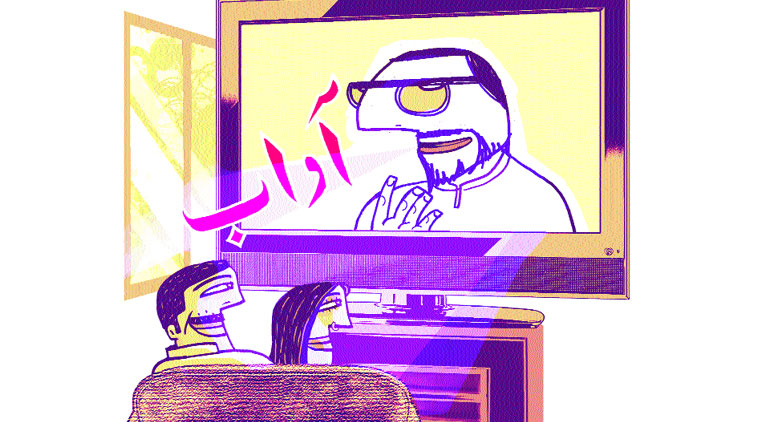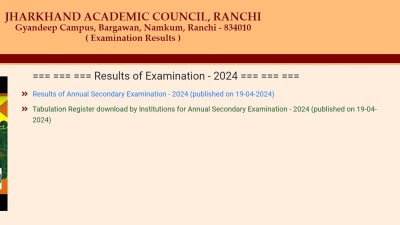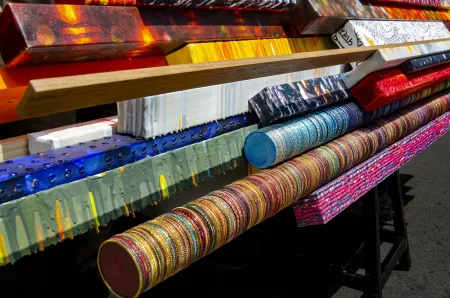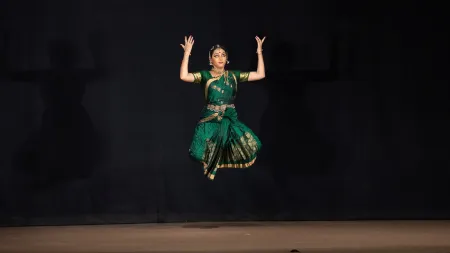- India
- International
Faiz Wala Love: Small screen’s love affair with Urdu
Urdu’s revival on the small screen and at festivals indicates resurgent popularity of the language
 A bouquet of Urdu TV channels have been relaying small-town mushairas with the traditional format on weekends, drawing old-timers.
A bouquet of Urdu TV channels have been relaying small-town mushairas with the traditional format on weekends, drawing old-timers.
Less than a fortnight into a new experiment of a channel solely dedicated to one man reciting dohas by day and shayari at dusk, seems to have got everyone talking. Or just listening. Poet, lyricist and Member of Parliament Javed Akhtar says of his Active Tata Sky launch, “The response is tremendous. I am told we are adding between 15-20,000 viewers per day. Other active channels take six months to hit 10,000.”
A bouquet of Urdu TV channels have been relaying small-town mushairas with the traditional format on weekends, drawing old-timers. But Active Javed Akhtar is different. With old shers given a modern-day twist and a new theme explored each evening, this conversation seems to be tugging at both head and heart. Akhtar’s monologues in Urdu interspersed with short melodies by singers are being lapped up. So has Urdu suddenly found new converts or has latent demand discovered new suppliers?
Noor Zaheer, daughter of revolutionary writer Sajjad Zaheer and the head of IPTA (Delhi), says Urdu never went away. “It has always been around and the demand has been there, kept alive through Hindi cinema and songs. It is good that other media are enhancing the appeal of the language now,” she says.
Zee TV’s launch of Zindagi, a channel running Pakistani Urdu soaps, has been feted by critics for having reintroduced the story into soap, a tale that has a beginning, middle and an end. Styles and clothes worn by the women have already played a part in influencing fashions on this side of the bazaar. But an understated aspect behind the success of the shows is the language and the quiet which accompanies dialogues and interactions. Sensing the role Urdu dialogues have played in the channel’s popularity, there is a scroll that acts as a thesaurus and dictionary of Urdu phrases, a different term each day — explained in Roman letters.
Rakshanda Jalil, who recently translated the famous Urdu writer Intizar Husain, says, “The wheel has come full circle as Urdu is experiencing a big revival. It is a phenomenon unfolding before our eyes. I am stunned by the number of strangers and young people who mail me with poetry and want me to do islah (correct it) for them.” She says that usually antagonistic Hindi enthusiasts too believe that a full understanding of Hindi literature is not possible without knowing Urdu, both the script and the language.

In the past few months, many unusual suspects have made Urdu literature, mostly poetry, accessible through new media. Sanjiv Saraf, a businessman till recently, gave it all up to start Rekhta, a venture dedicated to making Urdu greats available online to those without an Urdu ‘background’. “I come from a business background, but was drawn to Urdu. I am surprised that Zindagi or Javed Akhtar’s channel took so long to happen. Urdu is part of how we think and this is just feeding that inner hunger. I see it in the response the South Asian diaspora across 165 countries has given us. There is a diwangi and starvation for Urdu and its lyricism,” says Saraf.
Shyam Anand Jha, a film writer in Mumbai, describes how despite years of trying to push Urdu aside “it cannot be done without. It is the mother tongue of poetry and romanticism in the country. Especially as life becomes stressful and more uncertain, a need and space for poetry is naturally created,” he says.
Akshay Manwani, who has just published his book on Sahir Ludhainvi (the landmark lyricist of Hindi cinema) says, “Urdu is receiving a huge response. An Urdu literary festival in Mumbai, which was held a year ago, was well received. People across ages and lifestyles are interested in Urdu despite Manto, Ismat Chughtai and other Urdu greats not being part of the official syllabus as they should be.
It’s funny, because films have completely different dialogues and another idiom. But just to include Urdu to tap into its magic, a dream sequence is created to make space for an Urdu song — like in Student of the Year (Ishq wala love) or Tashan (Falak tak chal) — to enable the use of words like fizaaein, falak and hararat. Directors want a hatke song, contrary to the idea that this is just a time of poor lyrics and noise,” says Manwani. Faiz wala love appears to be on the way back.
Apr 19: Latest News
- 01
- 02
- 03
- 04
- 05


































